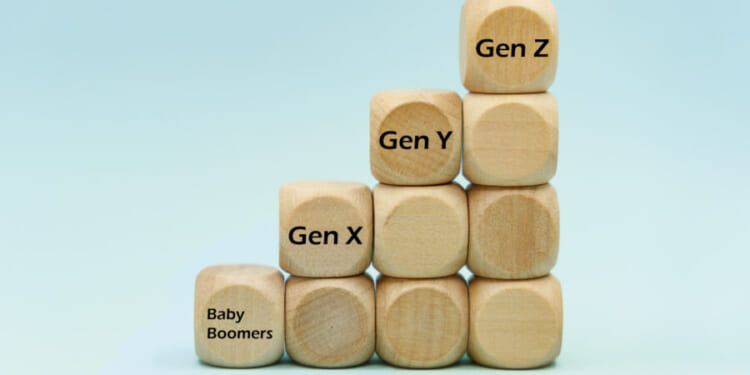How much do you trust religious leaders? In a recent poll, 59% of respondents said “a great deal” or “a fair amount” compared with the 41% who said “not much” or “not at all.” The analysis suggests that this is a good thing: public trust in religious leaders is about the same as that put in public school officials and much better than the regard they hold for business leaders (52% negative) and the national media (62% negative). Still, 41% is rather sorry number that has been growing over the past 25 years.
This is consistent with sociologist Christian Smith’s findings in his new book, Why Religion Went Obsolete: The Demise of Traditional Faith in America. Smith, through surveys and interviews, documents what most of us already knew: Traditional Christian faith — with its truth claims, exclusivity, evangelism, traditional sexual morality, institutions, hierarchy, and so on — has a smaller and smaller audience, especially among Gen X (born 1965-1980) and Millennials (born 1981-1996).
Traditional religion in the United States has suffered huge losses in recent decades. The number of Americans identifying as “not religious” has increased remarkably. Religious affiliation, service attendance, and belief in God have declined. More and more people claim to be “spiritual but not religious.” Religious organizations have been reeling from revelations of sexual and financial scandals and cover-ups. Public trust in “organized religion” has declined significantly. Crucially, these religious losses are concentrated among younger generations. This means that, barring unlikely religious revivals among youth, the losses will continue and accelerate in time, as less-religious younger Americans replace older more-religious ones and increasingly fewer American children are raised by religious parents.
Smith lays out the data for Baby Boomers, Gen X, and Millennials with devastating clarity, demonstrating a huge “cultural mismatch” with traditional religion. He goes on to extrapolate to Gen Z (born 1997-2012) and younger people, admitting that while there is little data, there doesn’t seem to be any change in attitudes. Similarly, The Hill reports d, “Younger Americans are becoming less likely to say they are religious, with about a third of Generation Z and millennials now identifying with no religion….”
And yet perhaps I’m becoming an optimist as I get older. I see signs of hope.
Gen Z Reflects
Hope comes from anecdotal evidence that something else is going on with Americans under 30. I’ve written here at The Stream about high school students rejecting smartphones and reading Boethius instead, and about Gen Z’s longings regarding the traditional family with its attendant values, including religion. The August/September 2025 issue of First Things includes a review of two books by Gen Z authors: Don’t Forget We’re Here Forever: A New Generation’s Search for Religion by Lamorna Ash and Godstruck: Seven Women’s Unexpected Journeys to Religious Conversion by Kelsey Osgood.
Then there’s my friend, a Newman Center priest who tells me that business is booming. Other Newman chaplains he knows report the same. There are stories about young men becoming Eastern Orthodox, drawn by its unchangeable doctrinal orthodoxy, the beauty and transcendence of the liturgy, and especially the rigorous spiritual disciplines including long services and ascetic fasting during Advent and Lent.
Osgood, cited above, converted to Orthodox Judaism with its demanding rituals, traditions, and rules after she found herself “alone with nothingness.”
And that “alone with nothingness” is, I think is a, if not the, key to understanding what’s going on.
Ohio University economics professor Richard Vedder notes:
College kids are glum from hearing from professors, DEI apparatchiks, and student affairs bureaucrats what a failure their nation and its leaders have been, how they and their families are privileged oppressors of the poor, meek and humble, etc. Is it any wonder that suicides in the United States rose 37 percent after adjusting for population growth in the first two decades of this century?
Offering Nothing, Driving Them to God
If those students are straight white men, they’ve also been told that they are irredeemable carriers of “toxic masculinity” and racism and that all of us, just by exhaling carbon dioxide are killing the planet. “Glum” doesn’t begin to cover the sadness that results in frightening rates of depression and suicide among Gen Z.
At the same time, Vedder observes, his college is experiencing a quiet revival of orthodox Christianity, as are Harvard, Yale, and Brown. Could it be that young people who are “alone with nothingness” also know so little about religion that they don’t hold the strong antireligion prejudices engrained in those just a bit older?
Or perhaps the anecdotes cover only a tiny but earnest minority. And that’s okay. As Pope Benedict XVI wrote in his 2009 book Faith and the Future:
From the crisis of today the Church of tomorrow will emerge — a Church that has lost much. She will become small and will have to start afresh more or less from the beginning. She will no longer be able to inhabit many of the edifices she built in prosperity. As the number of her adherents diminishes, so it will lose many of her social privileges.
He went on, “The Church will be a more spiritual Church, not presuming upon a political mandate, flirting as little with the Left as with the Right.” That is to say, the Church will be deeply countercultural and radical.
Such a Church may be just the embodiment of the Gospel that will attract not only Gen Z and younger people, but everyone who is sick of the lies of a decaying public culture, indoctrination from our failing educational system, technology-induced loneliness and isolation, rampant materialism, and the broken promises and rancid residue of the sexual revolution — that is, a Church that is the genuine alternative to being “alone with nothingness.”
James Tonkowich is a freelance writer, speaker, and commentator on spirituality, religion, and public life. He is the author of The Liberty Threat: The Attack on Religious Freedom in America Today and Pears, Grapes, and Dates: A Good Life After Mid-Life. He is Instructor Emeritus at Wyoming Catholic College.











